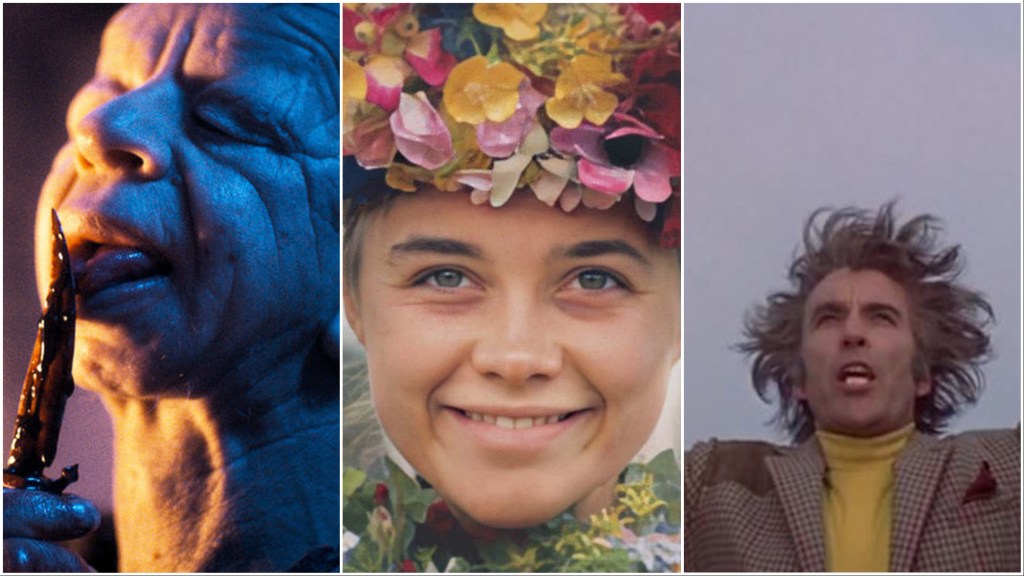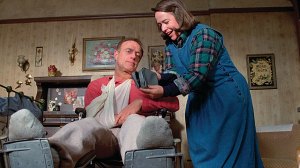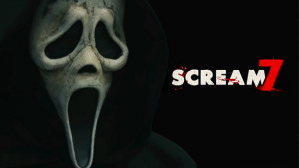Few horror subgenres delve as deeply into human psychology as cult-themed films. These movies explore our fundamental needs for belonging and meaning while exposing how easily those desires can be manipulated. From isolated communes to urban occultists, cult-focused horror films reveal the terrifying possibilities when charismatic leadership meets vulnerable followers. Furthermore, they make us question if we are really above the influence of cults or if we would also fall victim to these nefarious organizations.
Videos by ComicBook.com
Here’s our ranking of the seven best horror movies about cults, each offering a unique perspective on collective beliefs gone wrong.
7) The Lodge (2019)
Directors Severin Fiala and Veronika Franz craft a chilling winter nightmare in The Lodge, starring Riley Keough as Grace, a woman haunted by her past in a religious cult. When Grace finds herself trapped in an isolated winter lodge with her soon-to-be stepchildren, her traumatic history begins to surface in disturbing ways. As if that wasn’t scary enough, the film’s claustrophobic setting amplifies its exploration of how cult-related trauma can poison even the most ordinary family dynamics.
What sets The Lodge apart is its unflinching examination of generational trauma and religious extremism. Rather than focusing on active cult participation, the film shows how the psychological scars of cult membership can persist long after an escape, affecting not just the survivor but everyone around them.
6) Baskin (2015)
Turkish horror film Baskin takes viewers on a descent into madness when a group of police officers stumbles upon a terrifying cult ritual. The film stands out for its unique cultural perspective and uncompromising vision. While many cult films focus on psychological manipulation, Baskin presents a more visceral approach, examining how authority figures react when confronted with forces beyond their comprehension or control.
Director Can Evrenol creates a nightmarish atmosphere that blends surrealism with visceral horror, pushing the boundaries of conventional narratives. Instead of a linear story, Baskin is a cyclical trip to hell, with scenes so violent and drenched in blood that they’ll remain carved into your memory long after the credits roll.
5) Rosemary’s Baby (1968)
Roman Polanski’s classic stars Mia Farrow as Rosemary Woodhouse, a pregnant woman who becomes the focus of her neighbors’ sinister plans. The film’s genius lies in how it gradually reveals the cult’s presence, building paranoia through seemingly innocent interactions that take on darker meanings as the story progresses.
Rosemary’s Baby revolutionized how horror films approach cult narratives by grounding supernatural elements in everyday urban life. Instead of painting the devilish cult as a group of wackos hidden in the woods, the movie shows how danger can hide in the places we consider the safest. Finally, its exploration of bodily autonomy and institutional control of women remains painfully relevant today. It’s no wonder Rosemary’s Baby’s influence can be seen in countless subsequent films dealing with occult conspiracies.
[RELATED: Before Wolf Man, These Are the 7 Best Werewolf Movies]
4) The Wicker Man (1973)
Robin Hardy’s folk horror masterpiece follows Sergeant Neil Howie (Edward Woodward) as he investigates a missing person case on a remote Scottish island. What he discovers is a pagan society that challenges everything about his Christian worldview.
The film’s strength lies in its ambiguity, presenting both Howie’s rigid Christianity and the islanders’ paganism with equal measure of sympathy and criticism. The film forces viewers to question whether Howie’s Christian morality is any more valid than the islanders’ pagan beliefs, creating a sophisticated examination of religious relativism that culminates in one of horror cinema’s most shocking endings. In addition, Christopher Lee’s memorable performance as Lord Summerisle helps create one of cinema’s most fascinating cult leaders.
3) The Endless (2017)
Justin Benson and Aaron Moorhead’s mind-bending film follows two brothers returning to the “UFO death cult” they escaped years ago. What begins as a journey for closure becomes an exploration of time, reality, and the nature of free will. The directors’ decision to play the brothers themselves adds an extra layer of authenticity to the story, as Benson and Moorhead know precisely what kind of horrors they want to conjure with this slow-burn meditation on cults.
The Endless distinguishes itself by avoiding typical cult movie tropes. Instead, it uses the setting to explore existential questions about choice and determinism. The movie also doubles down as one of the best explorations of cosmic horror ever put on film, delving into the uncomfortable horrors of facing a force of nature you can’t comprehend. As a result, The Endless’ innovative approach to supernatural elements and complex narrative structure creates a uniquely thoughtful entry into the genre.
2) The Empty Man (2020)
David Prior’s criminally underappreciated film follows ex-cop James Lasombra (James Badge Dale) as he investigates a series of disappearances linked to the mysterious Pontifex Society. Slowly, his missing person case evolves into a meditation on belief, reality, and the nature of existence itself.
The Empty Man elevates cult horror by treating its philosophical concepts with genuine intellectual rigor. The film suggests that ideas themselves might be conscious entities capable of spreading like viruses through human minds. Through the Pontifex Society’s doctrine, the film explores how modern loneliness and existential dread might make people susceptible to dangerous ideologies that promise meaning through the obliteration of the self. Granted, this is not an easy movie, as it demands the audience to question what reality even means, which explains the movie’s initially polarized reception. Yet, The Empty Man has slowly found the recognition that it deserves.
1) Midsommar (2019)
Ari Aster’s daylight nightmare follows Dani (Florence Pugh) as she joins her boyfriend Christian (Jack Reynor) on an anthropological trip to a remote Swedish commune following a devastating personal tragedy. By setting its horrors in perpetual sunlight, the film creates a unique sense of disorientation that mirrors Dani’s psychological state as she’s drawn deeper into the commune’s influence.
What makes Midsommar the pinnacle of cult horror is its careful balance of empathy and horror. The film understands that cults don’t prey on weakness but on universal human needs for community, understanding, and ritual. That’s all the more relevant as Midsommar doubles down as a study of how seductive white supremacy ideas can be to those lacking meaningful human bonds. Through Dani’s journey from isolation to terrible belonging, Aster examines how grief can make anyone susceptible to manipulation. The film’s stunning cinematography and attention to detail in its ritual sequences create an immersive experience that’s simultaneously beautiful and horrifying.





